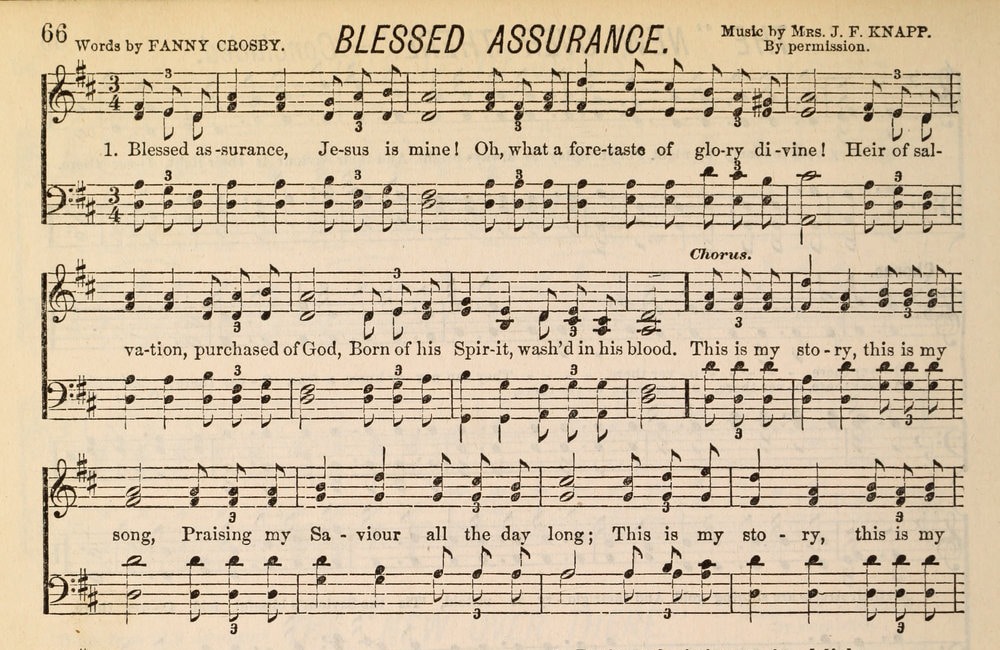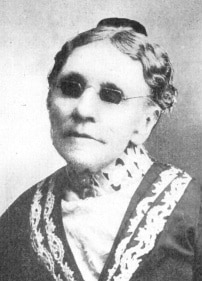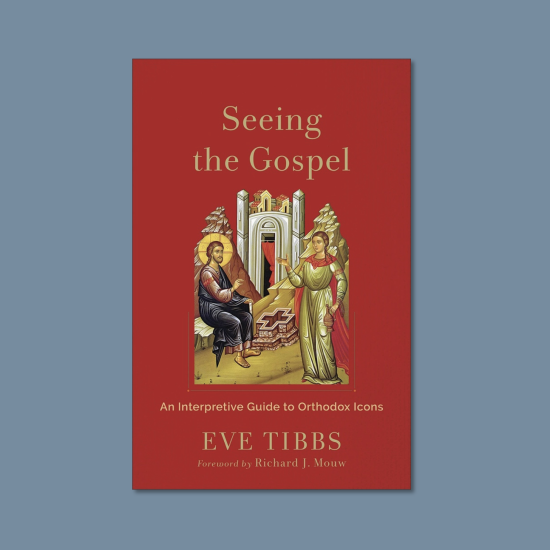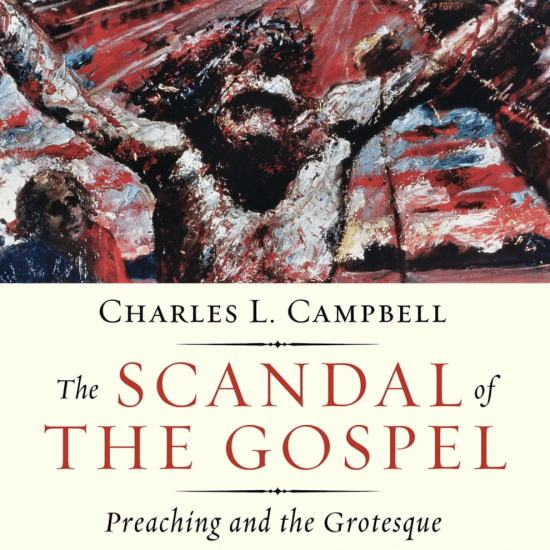
 All of you old-timers like me who grew up in Baptist, Methodist, or other “evangelical” churches know the name Fanny Crosby, the blind woman who wrote more gospel songs/hymns than anyone else in history. She was born 200 years ago this month.
All of you old-timers like me who grew up in Baptist, Methodist, or other “evangelical” churches know the name Fanny Crosby, the blind woman who wrote more gospel songs/hymns than anyone else in history. She was born 200 years ago this month.
Fanny’s Blindness

Fanny Crosby
Frances Jane Crosby was born about 75 miles north of New York City on March 24, 1820. Throughout her long life — and she died shortly before her 95th birthday in 1915 — she went by the name Fanny.
When just a few weeks old, Fanny had an eye infection that an incompetent doctor mistreated. Consequently, Fanny became blind for life. A few months later, her father died and her mother, widowed at 21, had to go to work as a maid.
Grandmother Eunice Crosby then took care of Fanny — and she taught the precocious little girl that she could learn and excel in life despite being blind. When Fanny was only eight or nine years old, she wrote these words:
Oh, what a happy soul am I, although I cannot see;
I am resolved that in this world, contented I will be.
How many blessings I enjoy that other people don’t;
To weep and sigh because I’m blind?
I cannot, and I won’t.
Just before her 14th birthday, she enrolled as a student in the New York Institution for the Blind (NYIB, now the New York Institute for Special Education).
Fanny was a student at NYIB for eight years and then taught there for fifteen years, leaving in 1858, the year she married Alexander Van Alstyne, who was also blind — and who had also been a student and then a teacher in the same school.
While a teacher at NYIB, Fanny had the opportunity to recite some of her poems before the U.S. Senate and later before a joint session of Congress — the first woman to do either. She also became a friend of President James Polk, who visited NYIB, and with Fanny, at least twice during his presidency, the last time being in 1848.
In 1849 the cholera epidemic in the U.S. worsened, and Fanny nursed children in the school. After she showed symptoms, she was asked to leave the NYIB until autumn. She survived, but President Polk, whose term ended in March, died of cholera in June of that year at the age of 53.
Fanny’s Service
Although she had written poetry for thirty years by the time of her marriage, it was only a few years later that she began to write hymns — and write she did! She is said to have written more than 9,000 gospel songs/hymns!
Many of her hymns were regularly used in the highly popular evangelistic campaigns of Dwight L. Moody and Ira Sankey. But hymn-writing was not what Fanny considered her main mission in life.
According to this website, Fanny “wanted most to be remembered as a home missions worker to the poor.” She served in various New York City rescue missions from the early 1860s to the first decade of the 1900s.
Chapter 18 of her book Fanny Crosby’s Memories of Eighty Years is titled “Work Among Missions,” and she writes of how her work at the well-known Bowery Mission began in 1881. “Serving Kings: The Bowery Mission in Manhattan at 140 Years” is an article in the Winter 2020 Plough Quarterly that quotes words Fanny often said when speaking in the Bowery Mission chapel services.
Evangelicals, like Fanny, in the 19th century often combined loving service to people in physical need with sharing a Gospel message for their spiritual needs.
Fanny’s Hymns
Only a very few of Fanny’s many hymns can be mentioned here. You who know her hymns have your own favorites, I’m sure, but three of her most well-known hymns are also three of my favorites, and I sang them often from when I was a boy.
Those three are “Rescue the Perishing” (1869), “Blessed Assurance” (1873), and “I Am Thine, O Lord, I Have Heard Thy Voice” (1875). According to Hymnary.org those hymns are currently found in 693, 933, and 616 hymnals, respectively.
I have especially enjoyed reading/hearing — and being challenged by — the first two verses of the third hymn:
I am Thine, O Lord, I have heard Thy voice,
And it told Thy love to me;
But I long to rise in the arms of faith
And be closer drawn to Thee.
Consecrate me now to Thy service, Lord,
By the pow’r of grace divine;
Let my soul look up with a steadfast hope,
And my will be lost in Thine.
You can read the lyrics of that gospel song at the link above or hear them beautifully sung here.
A version of this article first appeared on Seat’s blog, The View from This Seat. It is used with permission.





